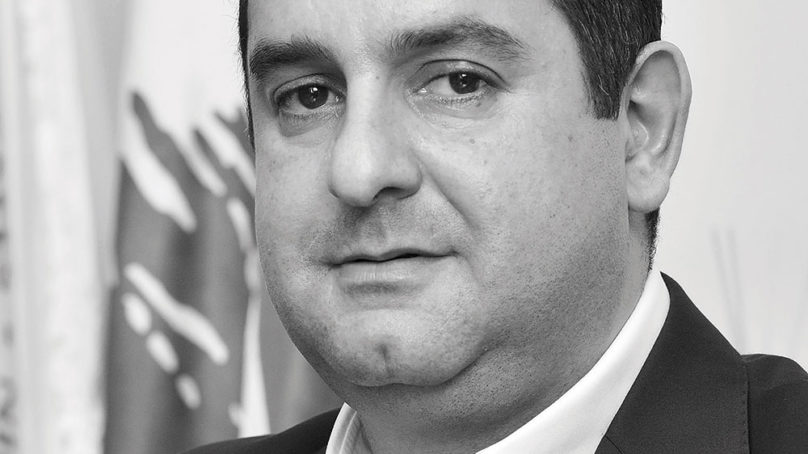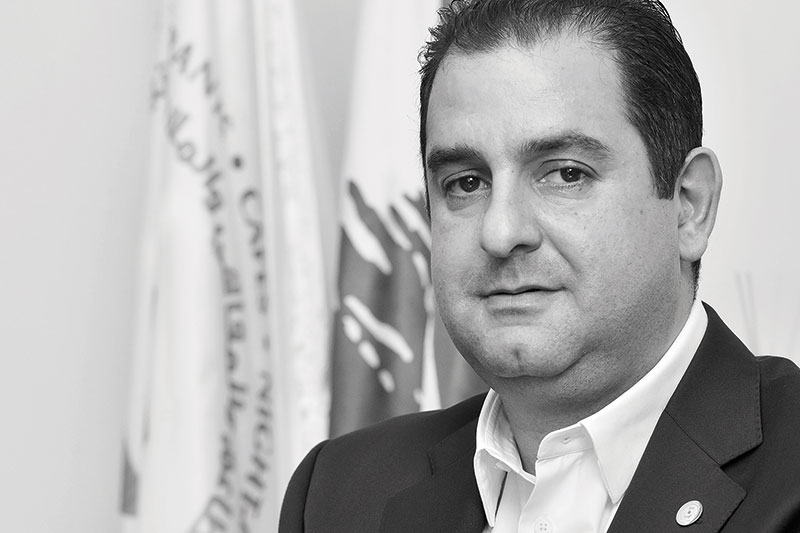As Lebanon’s hospitality sector moves to recapture the golden period of 2009 – 2011, Tony Ramy, restaurateur and president of the Syndicate of Owners of Restaurants, Cafés, Night-Clubs & Pastries, tracks the changes he’s witnessed in the industry over the years and tells HN where he sees potential for startups and growth
An all-encompassing, countrywide tour around Lebanon in the coming months marks the latest in a series of initiatives introduced by the Syndicate of Owners of Restaurants, Cafés, Night-Clubs & Pastries aimed at boosting support for F&B operators and enhancing the industry’s image.
Tony Ramy, the syndicate’s president and a longstanding restaurateur, told HN that the project, which has been planned with partner GWR Consulting, is expected to get underway at the end of September.
“We will launch an awareness campaign for cost control, P&L analysis, financials, cashflow, crisis management and many other subjects that could help owners to survive in the current circumstances,” he told HN.
Taking it to the operators
The tour forms part of a broader bid to help raise standards across the sector by enforcing rules relating to food safety and other areas, while championing quality. Its other objectives, which include protecting the interests of the F&B sector and boosting investment in hospitality, will also be in the spotlight.
The syndicate’s proactive approach is clearly delivering results, with figures showing that membership has rocketed from 100 to 1,500 since 2015. Ramy believes several factors have contributed to the organization’s success, ranging from the selection of a “young, dynamic and diversified” board to its choice of partners, all of whom have a high level of expertise in their field, which, he said, ensures industry players can relate to them.
“Each company is a leader in its field,” he told HN. “For example, they include Alfa, Boecker, Café Najjar, Clover Brokers, Diageo, Natgaz, Vresso, Omega Software, Pepsi, Aquafina, VIP Parking Control, GWR, Ksara, EBA, EMF and Vespeed. With their help and regular meetings, we are able to better understand the market needs.”
Legal challenges
Asked about the issues most commonly raised by the syndicate’s members, Ramy cited the lengthy processes involved in resolving the legal status of an outlet as the number one bugbear.
“And we mean here the very ancient by-laws and regulations that no longer meet current needs,” he said. “The licensing process is considered the hardest part that the owner goes through. We are seeking to modernize these regulations and unify the process.”
The syndicate is also well versed with mistakes that aspiring industry players sometimes make when starting out or expanding.
“Usually, the key players are more aware and tend to be prudent before taking any risk, but, the ‘intruders’ in the sector, who are seeking a quick profit, and opening branches randomly without making a market study and a survey, risk making deadly mistakes that might lead to bankruptcy,” he admitted.
This word of caution comes from someone who is proud to acknowledge that he was taught by his late father the importance of remaining a ‘restaurateur’ and resisting the temptation to become an ‘entrepreneur’.
Planning is paramount
Failure, he believes, can stem from investing in a concept without a solid structure, business plan, forecast or identity. Ideally, a business plan should encompass a feasible rental agreement, a prime location, a unique branding and new identity, is his advice.
Ramy’s background and track record make him an ideal candidate to give an overview on both the challenges that hospitality industry players face and the opportunities available within the sector. A graduate of the Grand-Lycee Franco-Libanais, he has also gained a business degree from Saint Joseph University in 1996. Soon after graduation, he became part of the management team of Al Sultan Brahim & Diwan Beirut group of restaurants, where he oversaw the successful expansion of the restaurants in Lebanon and in the region, including Al Falamanki, BO18, Trainstation, and Mama Pita. Today, over 1,000 people are employed at Ramy’s restaurants.
However, he is the first to admit that the current climate is much more challenging for operators than the ‘golden period’ between 2009 and 2011, when the hospitality sector boomed, the number of tourists reached a record 2.16 million (2010), and revenues and turnovers soared.
Ramy believes that just as political and economic stability and security helped to define these successful years, they will also play a key part in the hospitality sector’s revival.
“During this period, the country was showcased on international platforms through the foreign media, and Lebanese cuisine was highlighted as among the best cuisines in the world and won several awards,” he said. “Unfortunately, the war in Syria erupted in 2011 and Lebanon was strongly affected on all levels.”
Aiming high
He is confident, however, that Lebanon has the potential to reclaim its coveted position, highlighting the initiatives underway within the tourism industry to help the country regain its preferred status.
“The Syndicate, in cooperation with the Ministries of Tourism, Economy and Trade, Finance and Labor, as well as all the concerned governmental bodies, is exerting utmost efforts to keep this sector alive amidst the crisis,” he told HN.
National initiatives include the Lebanese Gastrodiplomacy, launched recently by the Ministry of Foreign Affairs. The syndicate forms part of the committee for the project, which is looking to raise the profile of Lebanese food and outlets in countries with sizeable diaspora communities.
Positive signs
The stats are also looking positive, with the number of tourist arrivals reaching 1.86 million in 2017, according to the Ministry of Tourism, marking a seven-year high. Other high-profile successes include Beirut being named the ‘Best International City for Food in 2016’ by Travel + Leisure, and Joseph, in Sin el Fil, winning Foodiehub’s 2015 ‘World’s Tastiest Sandwich Award’ for its excellent shawarma.
Asked where he sees possible openings in the current environment, Ramy pointed to the entrepreneurs who are launching startups or hands-on management businesses, with a reasonable capital investment and well-priced units. “Nowadays, fast-casual concepts are trending and making a great success,” he said. On the subject of changes witnessed in the hospitality sector, he also cited the “huge expansion” of clusters across the regions. “Another phenomenon is the ‘restaurant streets’ that have invaded every region in Lebanon, not to mention rural tourism, which highlights the beauty of Lebanese villages,” he added. He is adamant that while hospitality is considered to be the most challenging sector to enter, the rewards are there if the basic rules are followed and the operating climate is attractive. “Focusing on quality, value and taste is the magic equation to keeping the business going,” he said. “For the tourism sector, the sky is the limit if the situation in Lebanon is stable and secure.”



















